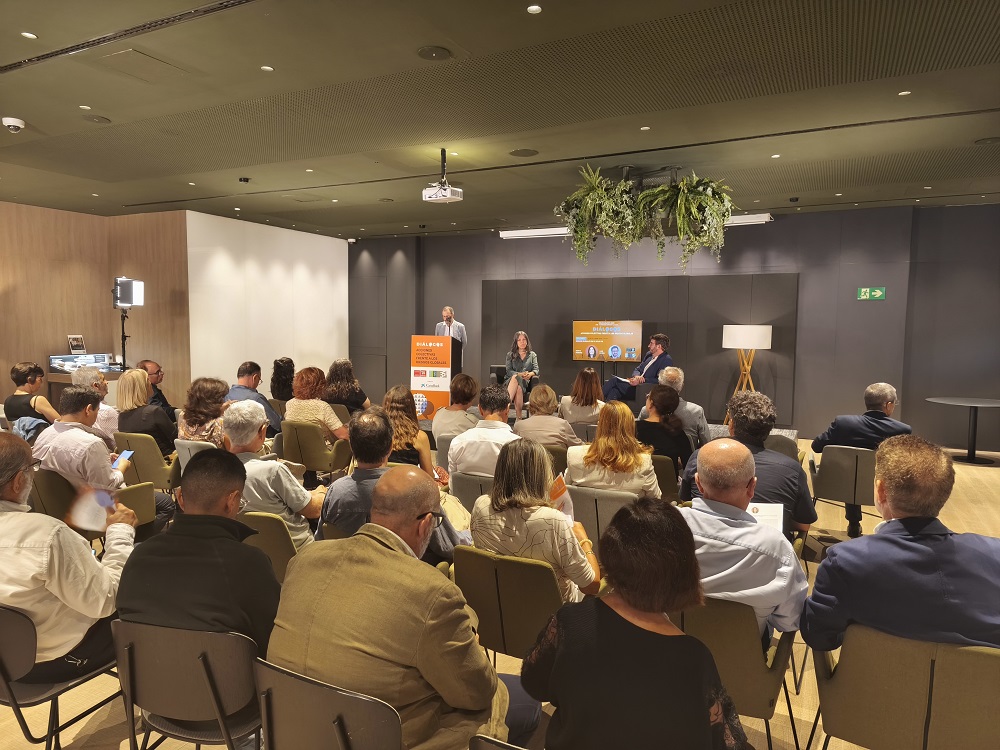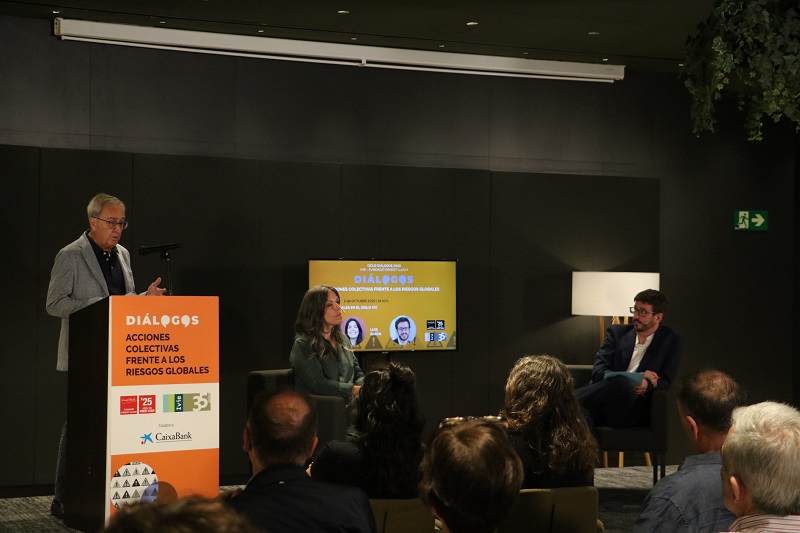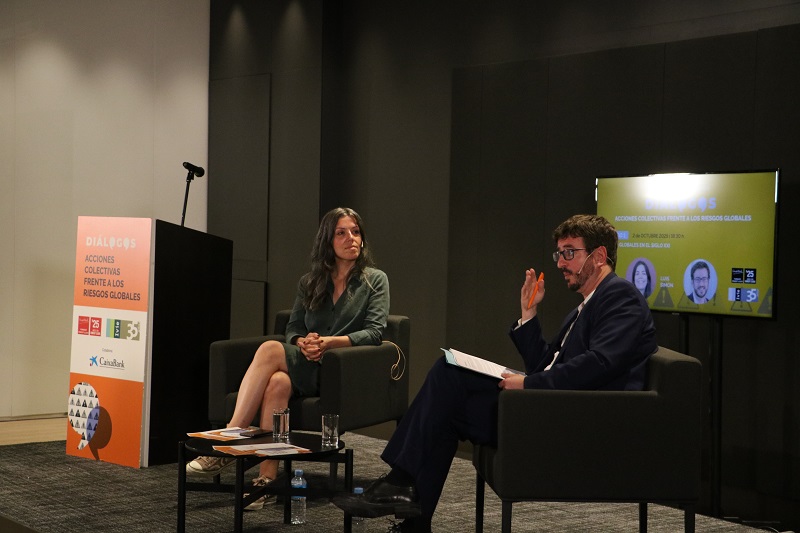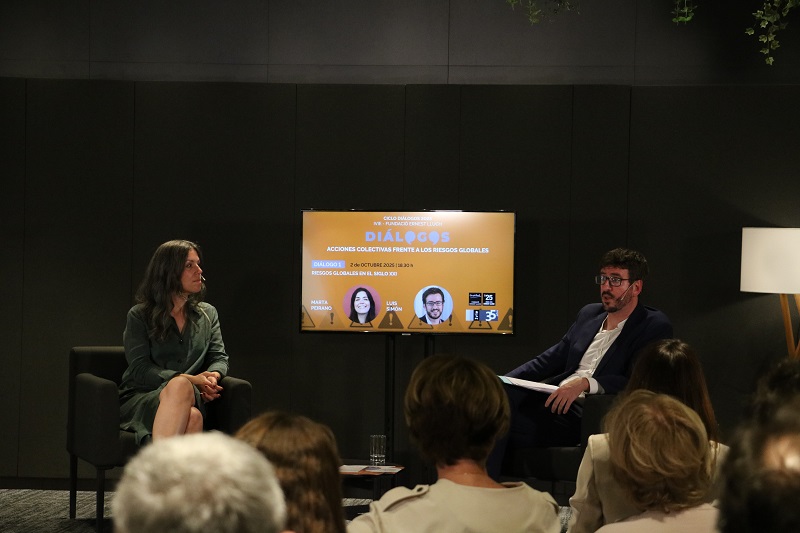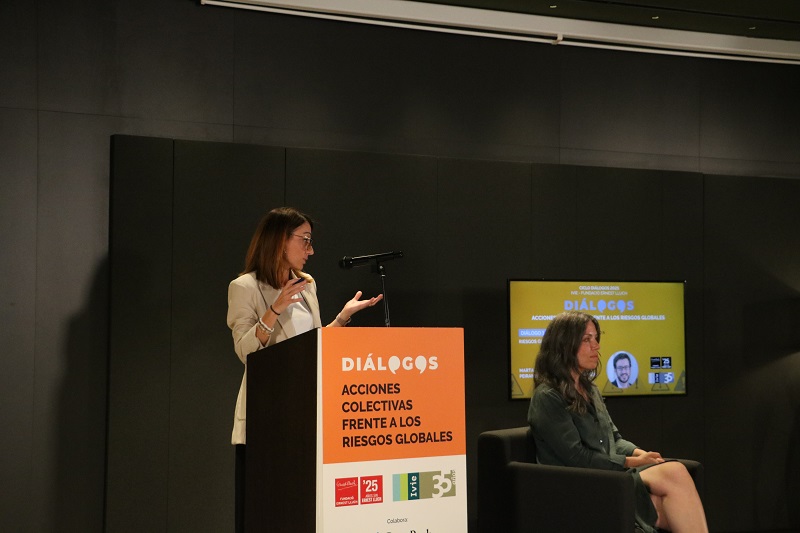Esta web utiliza cookies para que podamos ofrecerte la mejor experiencia de usuario posible. La información de las cookies se almacena en tu navegador y realiza funciones tales como reconocerte cuando vuelves a nuestra web o ayudar a nuestro equipo a comprender qué secciones de la web encuentras más interesantes y útiles.
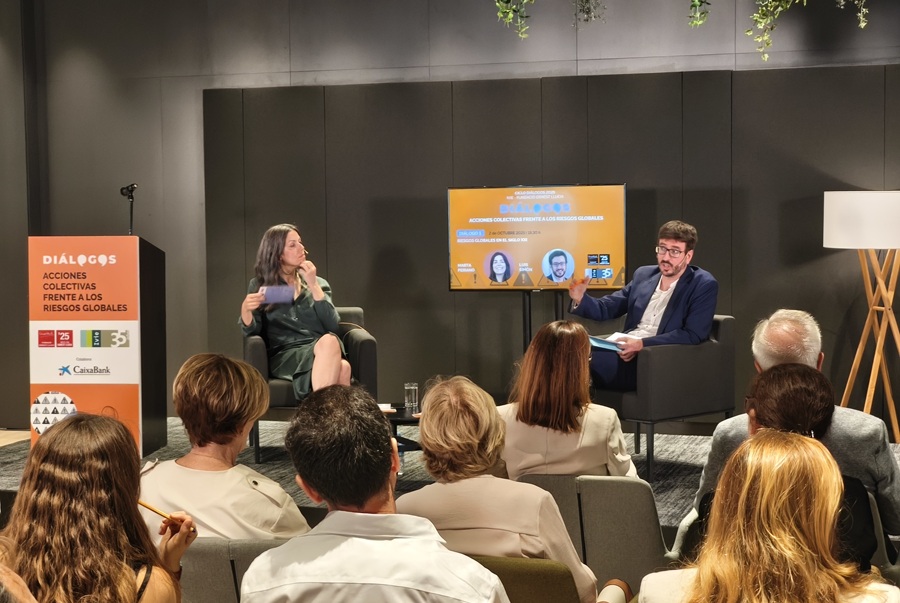
Marta Peirano: “Europe should start investing in its own technological infrastructure rather than relying on licenses that increase its vulnerability.”
The eighth edition of the dialogue series organized by the Ernest Lluch Foundation and Ivie in Valencia began with a debate between Marta Peirano and Luis Simón
The Collective Actions for Global Challenges series, organized by the Ernest Lluch Foundation and Ivie in Valencia, began with a dialogue between journalist and writer Marta Peirano—an expert in technology and power—and Luis Simón, Director of the Elcano Royal Institute’s Office in Brussels. The dialogue, held at CaixaBank‘s All in One space, explored the major global risks currently shaping the world, especially those related to geopolitics and the technological race.
The debate focused on the growing rivalry between the United States and China, a competition that, according to both speakers, influences the international relations of other countries and places technology at the heart of the conflict. According to Marta Peirano: “Five or six large companies based in these countries are currently driving technological development, such as generative artificial intelligence, and this technological struggle largely explains the territorial and geopolitical expansion we are witnessing.”
Similarly, Luis Simón emphasized that geopolitical dynamics are inseparable from the race for innovation: “On the international stage, Europe sees itself as both a battlefield and a player.” In his opinion, both the United States and China aim to influence Europe, but their approaches differ significantly, while Washington seeks to expand its influence, Beijing’s goal is to reduce the United States’ ability to do so.”
Both agreed that Europe, despite its initiatives in strategic sectors such as semiconductors and batteries, is advancing slowly. They also highlighted the power that large tech companies gain from an oligopoly, which creates significant technological dependencies. “Europe claims to have strategic autonomy, yet lacks the capacity to act in a unified manner,” comments Simón. Peirano added that Europe—and Spain in particular—is trying to keep pace with technological developments but without making the necessary investment to develop its own capabilities. She mentions that: “Instead of investing in our own technology, we invest in licensing foreign companies, which also extract our data and make us more vulnerable.”
For the journalist, this is the ideal moment—given the brain drain from the United States—to invest in universities and attract talent so as not to depend on large foreign tech companies. “We need open platforms led by public institutions and a clear commitment to our own innovation,” she said.
Peirano also reiterated the need to place the climate crisis at the center of the discussion. In her opinion, the alliance between the tech industry and political powers poses a serious environmental threat. She stated: “These powers have decided that borders are irrelevant and that the only thing that matters is territorial expansion through large data centers, which destroy the environment and extract resources on a large scale, with countries allowing it as they fear falling behind in technology.”
In addition to the technological rivalry between China and the United States, the dialogue also addressed other major sources of international instability, such as the war in Ukraine, the invasion of Gaza City, and tensions in Taiwan, India-Pakistan, and between Russia and NATO. For Marta Peirano, the Gaza conflict exemplifies the breakdown of the traditional system of international relations. She adds: “We are witnessing before our very eyes the extermination of a population as part of Israel’s territorial expansion project, with the collaboration of the United States. Gaza is the territorial project that the major geopolitical powers are dividing up among themselves.”
The Research Professor of International Relations at Vrije Universiteit Brussel summarized the main conclusion of the debate in one sentence: “The race for power absorbs everything, and technology has become the main instrument of that competition.”
This first dialogue is part of the series Collective Actions for Global Challenges, organized by the Ernest Lluch Foundation and Ivie, in collaboration with CaixaBank. This is the eighth edition of the Ernest Lluch Foundation-Ivie Dialogues, held in Valencia, which brings together leading experts to discuss major global risks and the need to strengthen anticipation, mitigation, and response capabilities.


